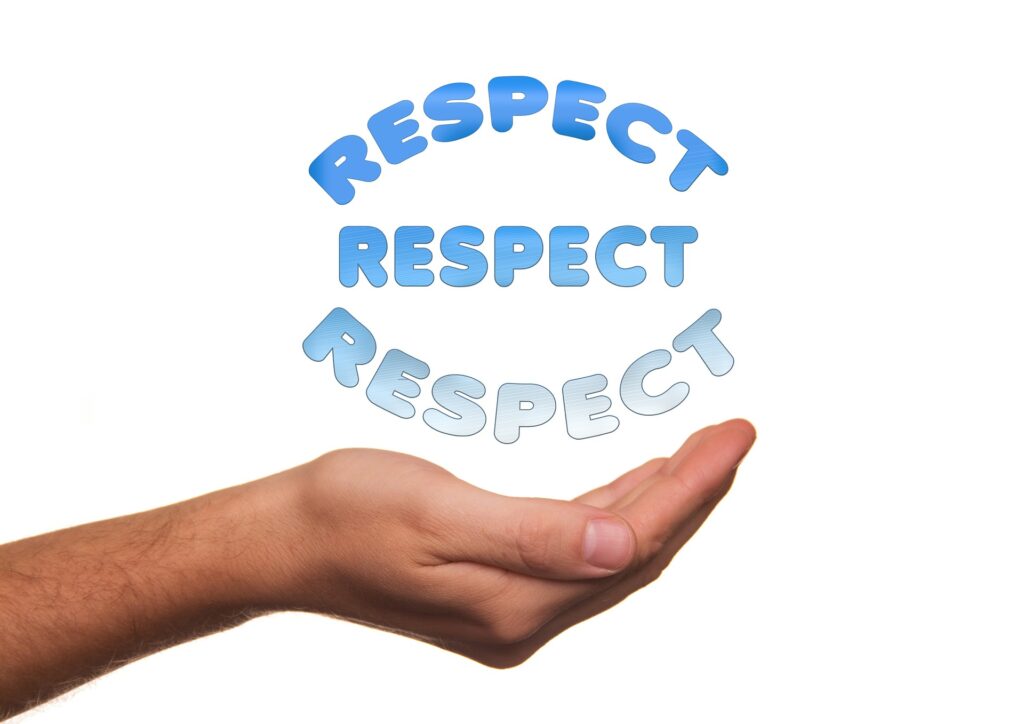Introduction
On March 3, 2021, a Nigerian rapper, CDQ, announced on Instagram that Burna Boy, one of the leading music artists in Nigeria (who just won a Grammy), had disrespected Obafemi Martins, a Super Eagles ex-international.
The post generated lots of response, and the topic trended on Twitter. When I saw “football money” and “Obafemi Martins” trending on Twitter, I decided to check the conversations generating the buzz.
What shocked me was that almost all the tweets on the topic were arguments about who was richer between the duo. People started flaunting the wealth of Burna Boy and Martins and comparing their assets. It was just like the way small children argue about their parents’ wealth when they get into a fight.
There was hardly any conversation around what happened – who was in the wrong, who said what, who needs to apologize for what, and questions along that line. It was as if the only thing that mattered was the net worth of those involved in the imbroglio (if we can call it that).
The underlying assumption (even though no one will say it, which is why it is underlying) was that a richer person somehow has the right to disrespect a poorer person, and we only need to be concerned if the reverse happened. It reminds me of the kid who is the owner of the ball and can abuse anyone but must not be abused lest he takes his ball away. According to this thought pattern, Burna Boy could only be wrong if Martins was richer (since Martins won’t be his mate). So if Martins was poorer, nothing to see here; if Martins was richer, we could take the issue seriously.
According to these people, what determines if two people are mates is not their age or position in a defined social hierarchy but their net worth. Consequently, once someone is not your mate, you can somehow disrespect them.
The clothes of brutality to maids, disrespect for drivers and gatemen, dishonour of the elderly, among others, are yarned from this materialistic fabric.
When I complained about this thought pattern in a Whatsapp group, they quickly reminded me that such is life; we live in a world where money is all that matters, an idea that has become ubiquitous (and the fruits that such ideas bear are also ubiquitous).
But I was not concerned about how things are but how they should be. What obtains should not blind us to what should obtain. A disordered society should not make us forget that there is something called order. Culture (formal or informal) is never static, and if there are things that are not right, we should be addressing them.
(Note: I don’t know what happened between Burna Boy and Obafemi Martins, and I don’t care one bit. I am only using the responses that followed the news as a symbol of the problem with our materialistic culture)

No place for egalitarianism
I must say up front that I am not a social or economic egalitarian. I don’t believe that we should attempt to create a society where we try to equalize the rich and poor by stealing (whether through force or unjust taxation regimes) from the rich to give to the poor. I am no socialist or communist; I believe everyone has a right to private property, and it’s not the government’s business to redistribute wealth (1 Kings 21:1-29).
Neither do I believe we should create a flat society where no one has authority over anyone else (like in Thomas Hobbes’ “fictional” state of nature).
Magistrates should have authority over their citizens (Romans 13), elders over their congregations (Hebrews 13:17), husbands over their wives (Ephesians 5:22-24), parents over their children (Ephesians 6:1-2), and employers over their employees (Ephesians 6:5-9, the actual reference here is to the master-slave relationship which is no longer common today).
(None of these authorities is absolute, however. God’s authority over his creatures is the only total and unqualified authority in the world).
I believe God demands respect and honour from us within those hierarchical relationships. There is a certain respect and honour citizens owe their magistrates (Romans 13:7), workers their employers (Luke 20:13), wives their husbands (Ephesians 5:33), employees their employers (1 Peter 2:18), religious adherents their religious leaders (Acts 5:34), children their parents (1 Timothy 3:4), and younger people their elders (1 Peter 5:5).

Human Dignity, Respect, and Honour
However, our responsibility to honour and respect people goes beyond these hierarchical relationships. Irrespective of which social or economic class people belong to, there is an underlying unity in the fact that we all bear the image of God (Genesis 1:26).
Citizens and magistrates, workers and employers, wives and husbands, parents and children, elders and younger ones, religious leaders and adherents all bear the image of God. There is a universal humanity that knows no social or economic class. Every human (in the womb or out of the womb) bears this divine image simply because they exist.
Elon Musk bears this image in the same way as the poorest man in Kenya. Wealth, social status, experience, age, education do not diminish this image in one person or increase it in another.
When God made a covenant with Noah, he made murder a sin because every human bears His image. “Whoever sheds human blood, by humans shall their blood be shed; for in the image of God has God made mankind” (Genesis 9:6). There is a right to life that belongs to every human, irrespective of social or economic status.
James also appealed to this universal human nature in his discussion about the power of the tongue. “With the tongue we praise our Lord and Father, and with it we curse human beings, who have been made in God’s likeness” (James 3:9). Cursing human beings is a sin of the tongue that we should refrain from. We should not curse any human being made in God’s image, irrespective of social or economic status. There is a demand for moral probity in the way we speak to every single human being. In essence, we should mind how we talk to everyone who bears God’s image.
In the parable of the Good Samaritan (Luke 10:25-37), Jesus also established our moral responsibility to help people in need irrespective of their tribe. The only thing that qualifies anyone for our help and kindness is their need. We are in a web of humanity where everyone who needs our help is a neighbour. And we should offer that help, irrespective of social or economic status. Specifically, God demands that we show kindness to the poor instead of oppressing them (Proverbs 14:31). To be generous to the poor is to honour God, and to oppress them is to show contempt for God.
The rich and the poor are both God’s creation (Proverbs 22:2). Consequently, they must be treated equally before the law (Proverbs 22:22, Leviticus 19:15, Deuteronomy 1:17). Injustice towards the poor and needy was one of the injustices for which God rebuked Israel (Isaiah 1:17, Amos 8:4-6). In addition to the legal injustice is the economic injustice where rich workers refuse to pay their workers, preferring to hoard their wealth (James 5:1-6).
In addition to all the above, God also requires us to respect and honour every man irrespective of their account balances, net worth, or social status. “Show proper respect to everyone,” Peter commands us (1 Peter 2:17). While Peter recognizes our specific duty to love the family of believers and honour political leaders (the emperor in Peter’s day), he also underscores our obligation to respect and honour all men.
We see an example of this in James 2. If a rich man comes into the church with a gold ring and fine clothes and a poor man comes in with old clothes, the church must respect and honour both men. Giving the rich man a good seat and condemning the poor man to the floor is a lack of respect for the poor. Both men should be respected and honoured, especially in the church, where all social distinctions submit to our underlying unity in Christ (Galatians 3:26-29).
And talking about the church, James goes on to say that God has “chosen those who are poor in the eyes of the world to be rich in faith and to inherit the kingdom he promised those who love him” (James 2:5). While the rich man in the church should take pride in his humiliation (his riches will pass away like a wild flower), the poor man should take pride in his high position – because he is seated with God in the heavenly places (James 1:10-11).In fact, God chooses the lowly and despised things of this world – not many wise, not many influential, not many of noble birth (1 Corinthians 1:26-31). It was the rich young ruler (and other rich men like him), not the poor fishermen, that will find it hard to enter the kingdom of heaven (Mathew 19:21-30).
Consequently, the poor men in the church should be respected and honoured like the rich because they bear God’s image and are part of Christ’s flock. If they deserve respect and honour in society (1 Peter 2:17) because they bear God’s image, how much more should they be respected in the church when they are inheritors with the rich of the same promise.
Every human, by virtue of the image of God in him, has fundamental human rights, is entitled to legal and economic justice (payment for work done, not Marxist redistribution), and deserves respect and honour (including the way we speak to them) irrespective of social or economic status.
Hence, fathers should not exasperate their children (Ephesians 6:3), employers should not threaten their employees but do good to them (Ephesians 6:9), husbands should respect their wives as the weaker vessel or their prayers will be hindered (1 Peter 3:7, ESV), church leaders (elders/pastors/bishops) should not Lord it over God’s flock (1 Peter 5:3), and magistrates should respect the citizens’ religious freedom (1 Timothy 2:2) and right to private property (1 Kings 21).
Even within the social order where we owe respect and honour to people because of their social positions, there is a universal demand for mutual respect and honour that has nothing to do with social hierarchy. People have dignity because they are made in God’s image, and their net worth should not affect that, never!
Nothing in the above means that parents can’t scold their children (Proverbs 13:24), employers can’t sack their employees (Luke 16:1-2), church elders can’t excommunicate a church member (1 Corinthians 5), husbands can’t override the decision of their wives (Genesis 35:16-18), or magistrates can’t use the sword against a criminal (Romans 13).
It, however, means that everyone treats everybody else as a fellow human being, bearing the same image, equal before God, enjoying the same dignity, and deserving of the same civility, respect, regard, and honour.

Conclusion
God is the maker of the rich and the poor (Proverbs 22:2). It’s by his sovereign providence that people become rich or poor (1 Samuel 2:7-8). As long as heaven and earth endure, there will be economic and social distinctions among men (forget Marxist utopias).
However, beyond those distinctions is the underlying unity whereby we all bear God’s image. It is that fundamental unity that places on us the responsibility to respect and honour all men.
You should respect and honour everyone, not because the tables can turn or because no one knows tomorrow. Whether the table turns – the rich become poor, and the poor become rich – is irrelevant. Our duty to respect and honour all men is rooted in the divine image.
If you are still wondering what this whole business of the divine image is all about, I leave you with the words of C.S. Lewis:
“It is a serious thing to live in a society of possible gods and goddesses, to remember that the dullest, most uninteresting person you can talk to may one day be a creature which, if you saw it now, you would be strongly tempted to worship, or else a horror and a corruption such as you now meet, if at all, only in a nightmare. All day long, we are, in some degree, helping each other to one or the other of these destinations. It is in the light of these overwhelming possibilities, it is with the awe and the circumspection proper to them, that we should conduct all of our dealings with one another, all friendships, all loves, all play, all politics. There are no ordinary people. You have never talked to a mere mortal. Nations, cultures, arts, civilizations – these are mortal, and their life is to ours as the life of a gnat. But it is immortals whom we joke with, work with, marry, snub and exploit – immortal horrors or everlasting splendors. This does not mean that we are to be perpetually solemn. We must play. But our merriment must be of that kind (and it is, in fact, the merriest kind) which exists between people who have, from the outset, taken each other seriously – no flippancy, no superiority, no presumption.”
No mere mortals!!!


